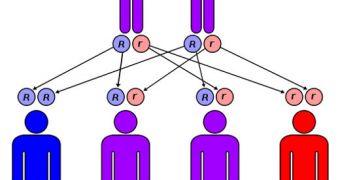For many years, scientists have been trying to find out the root cause of a series of fetal abnormalities. These syndromes, called Meckel-Gruber and Joubert, are quite common at times, and they have significant implications on an infant's life if he or she makes it beyond that point. These inherited conditions manifest themselves in only about 25 percent of children coming from parents who carry the genes. The international group of scientists that conducted the new investigation says that, in the near-future, would-be parents will be able to conduct a series of genetic screening tests, which will allow for them to ensure that their child will not be born with either of the two conditions.
Investigating these issues may lead experts to developing new treatments for more common disorders as well, such as polycystic kidneys and spina bifida. “By understanding the science behind this relatively rare condition, we can gain insight into other developmental conditions that are less serious but far more frequent. Spina bifida, for example, is one of the most common birth defects, affecting in one in every 1000 children,” explains professor Colin A. Johnson, who is a researcher at the University of Leeds. Scientists at universities in the United States (San Diego), Italy (Rome) and France (Paris) also contributed to the research.
Both syndromes targeted in this research are part of a larger family of diseases called “ciliopathies,” which manifest themselves when the cilia are not functioning properly. These are structures contained within eukaryotic cells that play any of two major purposes – help with cellular motion, or respond to and relay information to and from other cells. When these organelles, which mostly protrude from the cellular walls in the space between cells, do not pick up signals accurately, ciliopathies occur. In embryos, the condition is devastating. The children grow extra feet and hands, develop cysts in their kidneys, and suffer from severe brain malformations.
At this point, these abnormalities can only be picked up around the 12th week of practice. According to a paper the team published in the May 31 issue of the esteemed scientific publication nature Genetics, it would appear that the scientists' new discovery will enable the development of a new genetic test. This will allow would-be parents to calculate their risk of producing a child that will develop ciliopathies. During their work on zebrafish, the research collaboration found that TMEM216, a previously-unknown gene, plays a crucial part in triggering the two syndromes.
“Accurate genetic testing for TMEM216 will be particularly important for families throughout the world that have a history of ciliopathies caused by mutations to this gene. Now that we have identified a gene that causes Meckel-Gruber syndrome and Joubert syndrome, the role of particular signaling pathways whilst the embryo is developing can also be more clearly understood,” Johnson says, quoted by LiveScience.

 14 DAY TRIAL //
14 DAY TRIAL //